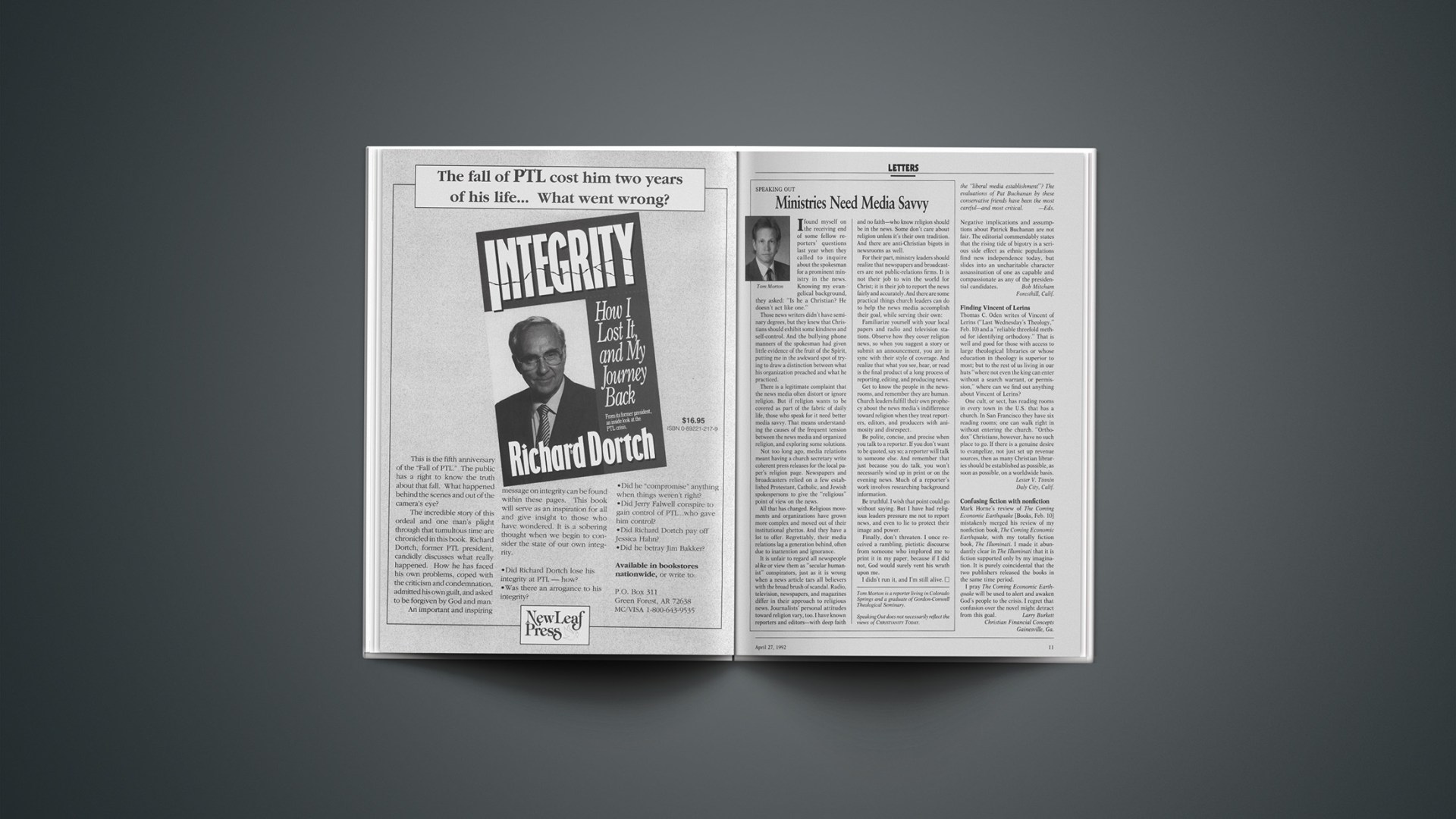I found myself on the receiving end of some fellow reporters’ questions last year when they called to inquire about the spokesman for a prominent ministry in the news. Knowing my evangelical background, they asked: “Is he a Christian? He doesn’t act like one.”
Those news writers didn’t have seminary degrees, but they knew that Christians should exhibit some kindness and self-control. And the bullying phone manners of the spokesman had given little evidence of the fruit of the Spirit, putting me in the awkward spot of trying to draw a distinction between what his organization preached and what he practiced.
There is a legitimate complaint that the news media often distort or ignore religion. But if religion wants to be covered as part of the fabric of daily life, those who speak for it need better media savvy. That means understanding the causes of the frequent tension between the news media and organized religion, and exploring some solutions.
Not too long ago, media relations meant having a church secretary write coherent press releases for the local paper’s religion pages. Newspapers and broadcasters relied on a few established Protestant, Catholic, and Jewish spokespersons to give the “religious” point of view on the news.
All that has changed. Religious movements and organizations have grown more complex and moved out of their institutional ghettos. And they have a lot to offer. Regrettably, their media relations lag a generation behind, often due to inattention and ignorance.
It is unfair to regard all newspeople alike or view them as “secular humanist” conspirators, just as it is wrong when a news article tars all believers with the broad brush of scandal. Radio, television, newspapers, and magazines differ in their approach to religious news. Journalists’ personal attitudes toward religion vary, too. I have known reporters and editors—with deep faith and no faith—who know religion should be in the news. Some don’t care about religion unless it’s their own tradition. And there are anti-Christian bigots in newsrooms as well.
For their part, ministry leaders should realize that newspapers and broadcasters are not public-relations firms. It is not their job to win the world for Christ; it is their job to report the news fairly and accurately. And there are some practical things church leaders can do to help the news media accomplish their goal, while serving their own:
Familiarize yourself with your local papers and radio and television stations. Observe how they cover religion news, so when you suggest a story or submit an announcement, you are in sync with their style of coverage. And realize that what you see, hear, or read is the final product of a long process of reporting, editing, and producing news.
Get to know the people in the newsrooms, and remember they are human. Church leaders fulfill their own prophecy about the news media’s indifference toward religion when they treat reporters, editors, and producers with animosity and disrespect.
Be polite, concise, and precise when you talk to a reporter. If you don’t want to be quoted, say so; a reporter will talk to someone else. And remember that just because you do talk, you won’t necessarily wind up in print or on the evening news. Much of a reporter’s work involves researching background information.
Be truthful. I wish that point could go without saying. But I have had religious leaders pressure me not to report news, and even to lie to protect their image and power.
Finally, don’t threaten. I once received a rambling, pietistic discourse from someone who implored me to print it in my paper, because if I did not, God would surely vent his wrath upon me.
I didn’t run it, and I’m still alive.
Tom Morton is a reporter living in Colorado Springs and a graduate of Gordon-Conwell Theological Seminary.
Speaking Out does not necessarily reflect the views of CHRISTIANITY TODAY.










